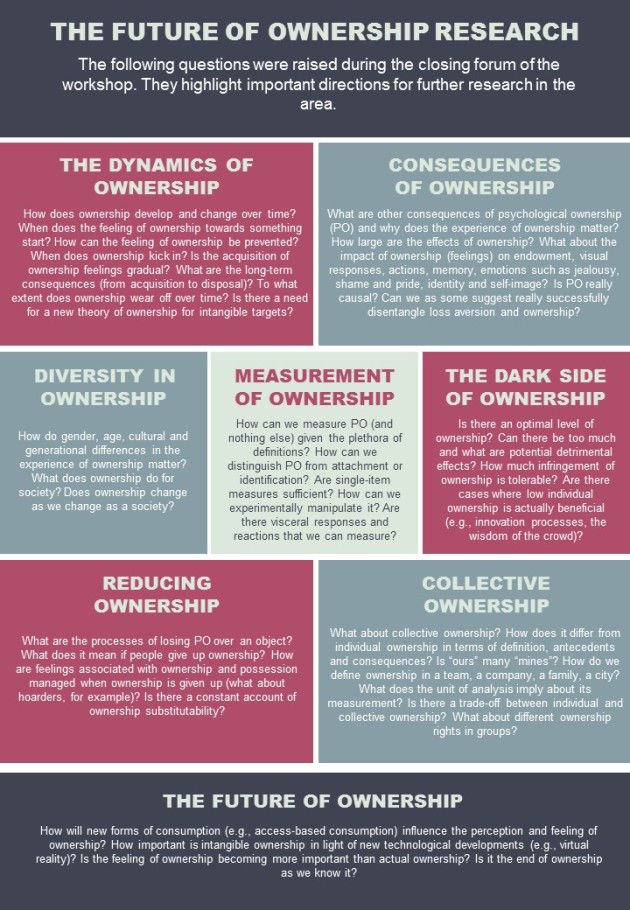BY MARTIN P. FRITZE, ANDREAS B. EISINGERICH AND MARTIN BENKENSTEIN
Consumers acquire material possessions as tangible expressions of their identity, extend themselves through products, and use material possessions as symbolic markers of group membership. Given the profound power of material possessions and individuals’ attachment to them, significant research has been conducted in an effort to understand the positive and negative consequences of such possession attachment for consumers. However, more recently, there has been a call for reconceptualizing consumerism for digital markets. Today, digital services such as Spotify, Tidal, or Apple Music for music streaming, Tinder, Grindr, or eHarmony for online dating solutions, and PayPal, Alipay, or WeChat Pay for online payment offerings, extensively permeate consumers’ lives. Digital services are ubiquitous, especially in digitized economies and often lead to time-consuming activities and habits, which can dramatically affect individuals’ well-being, either positively or negatively. Importantly, digital service consumption compared to other services often comes with very low entry barriers. For example, obtaining a membership at a gym demands that customers make an effort (i.e., making an appointment, driving to the location, talking to sales staff) even before the consumption process has begun. The “let’s give it a try” barrier is much higher in terms of personal resource investment than for digital service consumption. Simply downloading a new app, trying out a streaming service, or registering on a social media platform takes only seconds and requires little resource investment. Therefore, we wanted to explore when and how consumers, if at all, form attachments to digital services technologies and examine the extent to which and why people immediately stick to a digital service after using it for the first time (i.e., they become instantaneously attached).
One of the most important and robust empirical findings noted in the context of ownership research is the endowment effect. In the series of previous experiments on the endowment effect, people assigned approximately twice the value to commonly desired material items such as pens or mugs when they were endowed with the item and asked to state prices to sell the item compared with people who were asked to make offers to buy these items. A novel and important contribution of our research is to examine the endowment effect’s instantaneous nature of the reference point shift and consequent value change for digital service technologies.
As a preliminary test of our theoretical perspective, we conducted a field study to examine the real-world relevance of the endowment effect for digital services. We followed the recommended standard procedures employed in most previous studies. According to the established experimental standard approach of the endowment effect, the participants are randomly designated owners (nonowners) of a target object (e.g., pens, mugs). They are then told that they are (not) allowed to keep the object. Owners (vs. nonowners) are asked about the amount of money for which they would be willing to sell (buy) the object, indicating their willingness to accept, “WTA” (willingness to pay for the object, “WTP”). The endowment effect is quantified by the resulting WTA‒WTP disparity (WTA>WTP). Accordingly, and simply put, in the prestudy we expected that actual users of a digital service technology will state higher prices to give up using the service (WTAU–S) than nonusers will be willing to pay (WTPNU–B) to start using it (WTAU–S > WTPNU–B). The study followed a quasi-experimental design and included one manipulated between-subjects factor (group: nonuser-seller, user-buyer) and one measured variable (price). The real-world digital service referred to is a complimentary mobile app offered at some universities. It provides students with information about canteen menus, available jobs, events, and accommodation offers, all customized to their particular university. An online survey was conducted at a university that provides the app to its students. Those participants who stated they did not know the app or did not currently use it were automatically assigned to the nonuser-buyer group. The participants who stated they currently used it were assigned to the user-seller group. We found that user-sellers stated significantly higher prices than nonuser-buyers. As such, the prestudy confirmed the endowment effect for digital services as it replicated prior results in the context of material products in the context of digital service technologies.
However, more recently the endowment effect’s main explanatory accounts (i.e. the underlying psychological processes that drive the effect) have been subject to academic debate. On the one hand, since the initial studies on the endowment effect, the effect has long been ascribed to loss aversion, i.e. fact that losses loom larger than gains. That is, owners state higher prices to sell an object than buyers are willing to pay for it because, for owners, giving away the object is a loss. This loss for the owners is more severe than the gain buyers derive from obtaining the object. Therefore, higher price evaluations for the object by owners are mainly driven by a perceived parting disutility. The main reason for this is that the accumulation of possessions provides existential security for individuals. It is noteworthy that this human behavior with its evolutionary heritage may even be independent of the object-related evaluation. On the other hand, a growing stream of research directly challenges the “loss aversion account” and instead highlights the “ownership account” to explain the endowment effect. According to the “ownership account”, the higher valuation of the target object relates to a special bond with the object, which in turn induces ownership utility. This is ascribed to a resulting possession‒self link, as the object is incorporated into the extended self, becoming a self-referential part of the person’s identity. Referring to the “ownership account”, the reluctance of giving up an object is related to a special meaning of the object for the owner.
In order to explain how consumers become instantaneously attached to digital service technologies, we conducted an online experiment where we employed an extended experimental design for separately testing the ownership and loss aversion account and putting both accounts into direct competition. Moreover, we expected that the differences in prevailing service characteristics (hedonic vs. utilitarian) are likely to influence the endowment effect for digital services because the instantaneous formation of proprietary feelings for external objects is driven by people’s foresight or expectations of the object’s future use. That is, people instantaneously develop proprietary feelings for an object after evaluating their future usage intentions. Specifically, people retain psychological possessions because of two underlying saving patterns: instrumental saving and sentimental saving. Instrumental saving refers to the perceived future need for an object. The object fulfills the purpose of solving a task, and the person acknowledges the possibility of being able to use the object in the future. Simply put, people hold onto such an object simply because they might need it in the future, even if they currently have no immediate need for using it (e.g., insurance policy, antivirus software). In contrast, sentimental saving occurs when an individual consciously acknowledges that the object is relevant to maintain the individual self-concept. Sentimental saving is determined by the person’s self-related feelings for the object (e.g., family video, lifestyle app).
Considering the different explanations of the endowment effect, we expected the endowment effect to hold for both hedonic and utilitarian digital services. However, we argue that the difference in the occurrence of the endowment effect for both types of digital services lies in the psychological processes driving the effect.
People should be more likely to hold onto utilitarian digital services based on instrumental saving because the usage of utilitarian services does not tie-in with consumers’ identities but rather their practicability triggers future usage considerations (i.e., “I might need it in the future”). This is related to the endowment effect because loss aversion occurs due to a reluctance to give away external objects even when such objects currently have no special meaning for the owner. In contrast, a hedonic digital service should serve as an extension of the person’s self and is thus a reminder of a relevant part of the self-concept. Hence, people should be likely to hold onto hedonic digital services based on sentimental saving because the usage of it ties in with consumers’ identities. This conscious acknowledgment of an object’s self-related importance relates the endowment effect’s “ownership account” because the reluctance to switch from a hedonic service should occur due to the self-related importance of the service for the user.
Taken together, in the experimental study we found that psychological processes underlying the endowment effect differ between utilitarian and hedonic digital services. Indeed, proprietary feelings towards utilitarian digital services occurred due to loss aversion, whereas proprietary feelings towards hedonic digital services reflect the consumer’s conscious self-relatedness to the digital service. Individuals consciously or unconsciously hold onto digital utilitarian services simply because they are reluctant to feel a loss when with regard to giving them up. In turn, digital hedonic services hold a special self-referred meaning to individuals.
Given the ongoing progress in artificial intelligence and the potential for virtual reality to act as the next “super drug”, further research on human attachment to digital service offerings is rich in potential. We invite additional research on what we believe is a promising and important field of work not only for business to better maneuver an environment with an increased offering of digital services but also to help humankind in the pursuit of self-understanding and autonomy.
This research was recently published in Electronic Commerce Research and can be accessed at: https://link.springer.com/article/10.1007/s10660-018-9309-8


